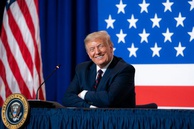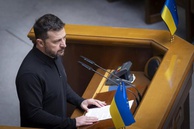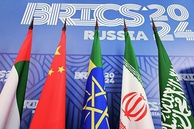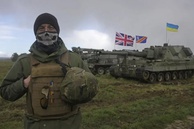These days, the world order is changing so fast that the institutions associated with international politics have no time to adequately respond to this and fully comprehend what is going on. In Russia, some analysts theorize that international law is something that is solid and stable, taking into account the interests of all parties, while the theory of “rules” and the world order based on them (rules-based order), promoted by the collective West and North American elites is just a trick meant to secure hegemony. This begs for a more detailed examination.
Pre-modern world order
Let us summarize the fundamental mutations of the world order over the past 500 years - that is, since the beginning of the New Age (Modern era).
Prior to the onset of the Age of Discovery (coinciding with the transition from Pre-modern to Modern, from traditional to modern society), the world was divided into zones of several autonomous civilizations. They exchanged with each other at different levels, sometimes clashed, yet none of them questioned the very fact of each other's existence, accepting everything as it was.
Those civilizations were:
- Western Christian (Catholic) oecumene (populated universe);
- Eastern Christian (Orthodox) oecumene;
- Chinese Empire (including cultural satellites - Korea, Vietnam, partly Japan and some states of Indochina);
- Indosphere (including parts of Indochina and the Indonesian islands);
- Iranian Empire (including areas of Central Asia under strong Iranian influence);
- The Ottoman Empire (generally inheriting a significant shareof the possessions of the Abbasids - including the Maghreb and the Arabian Peninsula);
- A number of independent and developed African kingdoms;
- Two American Empires (Incas and Aztecs).
Each civilization comprised several powers, often many different ethnic groups. Each civilization had its own distinct religious identity, manifested in politics, culture, ethics, art, lifestyle, technology and philosophy.
Essentially, this was a zoning of humankind at a time, when all societies, states and peoples lived as traditional societies, based on traditional values. All these values were sacred, sacral, yet they were different for each civilization. Sometimes more, sometimes less, depending on each particular case, but in general, all civilizations accepted the existence of others as a given (if, of course, they encountered them).
Notably, both the Christian West and the Christian East regarded themselves as separate oecumenes, as two Empires - with the predominance of the Papal principle in the West and the imperial principle in the East (from Byzantium this principle was taken over my Muscovy - the Third Rome).
Barry Buzan and Richard Little call this "ancient or classical international systems" [1]. Carl Schmitt refers them to the first nomos of the earth. [2]
It was the first model of international relations. Back then, there was no general international law, since each civilization was a completely autonomous world - not only a sovereign culture, but also a completely original understanding of life and nature. Each Empire lived in its own imperial space, the parameters and structures of which were determined on the basis of the dominant religion and its tenets.
Modern times: the invention of progress
This is where the fun begins. The Western European New Time (Modern) ushered in an idea that was completely alien to all these civilizations, including the Catholic-Christian one - the idea of linear time and the progressive development of humankind (later this evolved as the idea of progress). Those who embraced this attitude began to propagate fundamental ideas, according to which the "old," "antique" and "traditional" are obviously worse, more primitive and cruder than the "new," "progressive" and "modern." Moreover, linear progress dogmatically asserted that the new supersedes the old, overcoming and surpassing it in all respects. In other words, the new replaces the old, abolishes it and replaces it. This denies the dimension of eternity, which is the basis of all religions and all traditional civilizations, and constitutes their sacred core.
Simultaneously, the idea of linear progress negates all forms of traditional society (including the traditional society of Western Europe). Thus, the "ancient international system" or "the first nomos of the Earth" began to be viewed on the whole as the past, which must be replaced by the present on the way to the future. At the same time, the post-traditional post-Catholic European society (partly Protestant, partly materialistic-atheistic in line with the paradigm of the natural-scientific worldview) was taken as the Modern model. The idea of a single civilization that would symbolize the fate of all humankind emerged in the 16th–17th century Western Europe. This fate was to overcome tradition and traditional values, that is to cast aside the very foundation of the sacred civilizations that existed at that time. Now they meant nothing more than backwardness (compared to the modern West), a set of prejudices and false idols.
Earth's second nomos
This is how the construction of the “global international system” (according to B. Buzan) or the “second nomos of the Earth” (according to K. Schmitt) began.
Now the West starts transforming itself and simultaneously more and more actively influencing the zones of other civilizations. In Western Europe itself, there is a turbulent process going on destroying the sacred foundations of their own culture, dismantling the Papal influence (especially through the Reformation), the formation of European nations on the basis of sovereignty (previously only the Holy See and partly the Western European Emperor were considered sovereign), demolishing and sidelining religious dogmas and transitioning to the natural sciences on the basis of materialism and atheism. European culture was thus de-Medeivized, de-Christianized and universalized.
Parallel to this, the colonization of other civilizations - the American continent, Africa, and Asian countries was in full swing. Even the Empires – Chinese, Russian, Iranian and Ottoman that resisted direct occupation and retained their independence, were subjected to cultural colonization, gradually absorbing the attitudes of Western European Modernity to the detriment of their own sacred traditional values.
Modernity, progress and scientific atheism colonized Western Europe, which in turn colonized other civilizations, either directly or indirectly. It was a struggle going on at all levels with Tradition, sacredness and traditional values. A struggle between time and eternity. A struggle between a single civilization and multiple civilizations.
Westphalian peace
The process of building a second "international system" (the second nomos of the Earth) culminated in the Westphalian peace treaty, which put an end to the 30-year war, fought mainly by Protestants and Catholics (with the exception of Catholic France, which, due to its hatred of the Habsburgs, took the opposite side). The Westphalian Peace approved the first explicit model of international law - Jus Publicum Europeum, which completely rejects the principles of the medieval order. From then onward, only national states were recognized as bearers of sovereignty irrespective of their religion and political system (by the way, back then, all countries were monarchies). Thus, the national state (État-Nation) was recognized as the highest implementer of foreign policy, modeled not on traditional Empires or civilizations, but on modern European powers entering the era of rapid capitalist development, sharing the principles of modern times, natural sciences and progress.
Modern-time Western Europe became synonymous with civilization as such, while the rest of non-European political entities were referred to as “barbarism” (if their culture and politics were developed enough) and “savagery” (if peoples thereof lived in archaic societies without any clear-cut vertical political organization and stratification). "Wild societies" were subject to direct colonization, and their "hopelessly backward" population was subject to slavery. Slavery is a modern concept. It appeared in Europe following the end of the Middle Ages, along with the New Age, progress and the Enlightenment.
The “barbarian powers” (Russia included) posed a certain threat, which could be dealt with both by direct military confrontation and by the introduction into their elites of elements who shared the Western European worldview. Sometimes, however, the “barbarian powers” used partial modernization and Europeanization to their own advantage to oppose the West itself. The reforms carried out in Russia by Peter the Great attest to this in full measure. And still, the process of Westernization corroded the traditional values and political institutions of the era of "ancient international systems."
That is why Barry Buzan calls this second model of the world order a “global international system.” The only civilization now recognized was built on the idea of progress, technological development, materialistic science, capitalist economics and national selfishness. It was supposed to become global.
Sovereignty: the evolution of the concept
Even though that system nominally recognized the sovereignty of each nation-state, this applied only to the European powers. The rest were to settle for the status of colonies. AAs for the "barbarian states," they were subjected to derogatory ridicule and arrogant contempt. The past - including the Western European past - was disparaged in every possible way (hence the myth of the "dark Middle Ages"), while progress - humanism, materialism and secularism - was glorified.
However, the status of sovereignty began to be granted also to the colonies, which managed to shake off the power of the mother countries. This is exactly what happened during the American War of Independence. Later, other colonial formations followed suit and were gradually accepted into the European club. Henceforth, the Westphalian principles extended also to them. This came to be known as the Westphalian system of international relations.
By the end of the 19th century, this system had already included some of the liberated colonies and a number of “barbarian powers” (Russia, the Ottoman Empire, Iran, China), which, while preserving their traditional way of life at home, were increasingly drawn into the “global international system” established by the West.
The First World War was the pinnacle of the Westphalian order with the major national powers – Imperial Russia, Germany and Austria-Hungary clashing among themselves. During that conflict, coalitions were established arbitrarily, since the participants were independent and completely sovereign entities, which were free to ally with some and go to war against others, relying only on the decision of their supreme authorities.
The ideologization of the international system
By the 1930s, the Westphalian system started to change. The Bolshevik victory in Russia and the creation of the USSR added a sharp ideological dimension to the system of international relations. The USSR fell out of the dualism of “modern societies” and “barbaric states,” because it challenged the entire capitalist world, but was not an inertial continuation of the traditional society (on the contrary, the Soviet modernization was extremely radical, and sacred values were destroyed even to a much greater extent, than in the West).
The emergence of the phenomenon of European fascism and especially German National Socialism exacerbated even more the ideological divisions in in Western Europe itself. Following Hitler’s ascent to power, Germany started working hard to build a new European order based not on classical nationalism, but on a racial theory, lionizing the Aryan race and humiliating all others (partly including the Aryans themselves - Celts, Slavs, etc.).
By the end of the 1930s, the world had been divided according to the ideological principle. In fact, the Westphalian system, though still nominally recognized, was now a thing of the past. From now on, ideological blocs, rather than individual states, had sovereignty. The world had become tri-polar, where only the USSR, the Axis countries and the powers of the liberal Anglo-Saxon West, really meant something. All other countries were invited to join a particular camp, or ... blame themselves. Sometimes this was done by force.
The Second World War became a clash of exactly these three ideological poles. In fact, we dealt with a blueprint of a trilateral system of international relations with a pronounced conflict and antagonistic ideological dominant. Due to ideological reasons, one of the three poles rejected everyone else. Naturally enough, this eventually led to the collapse of the League of Nations and precipitated the Second World War.
Theoretically, different combinations could have formed with the Munich conspiracy hinting at a possible alliance of liberals and fascists, and the Ribbentrop-Molotov pact – of Nazis and Communists. As we know, the Liberals and Communists allied together against the Nazis. The Nazis lost and the Liberals and the Communists divided the world among themselves.
Bipolar system
With World War 2 now over, there developed a two-polar system. Now, not all nominally recognized “sovereign” countries enjoyed a sovereign status, and only two of the three ideological camps remained. The Yalta conference divided the world between the capitalist and socialist camps, and the UN became a symbol of this new model of the world order. International law was now based on parity (primarily nuclear) between the capitalist West and the Socialist East. The countries of the nonaligned movement received a certain degree of freedom to balance between the two poles.
Carl Schmitt calls the Cold War-era bipolarity and balance of forces “the Third Nomos of the Earth,” and B. Buzan does not distinguish it as a separate model of the world order, considering it as a continuation of the “global international system” (which somewhat weakens the relevance of its general theory).
Single-polar moment
The collapse of the socialist camp and the Warsaw Pact and the Soviet breakup sealed the end of the bipolar world order based on an ideological principle of capitalism vs socialism. Socialism lost, the Soviet Union surrendered and collapsed. Moreover, socialism recognized and accepted the ideology of the enemy, hence the Russian Federation, built on the basis of liberal capitalist norms. With the loss of socialism and the USSR, Russia also lost its sovereignty.
This is how the “fourth nomos of the earth” began to take shape. Carl Schmitt foresaw this, although he did not live to see this happening. Barry Buzan defined this as a "postmodern international system." This new model of international relations and the emerging system of international law were supposed to consolidate the established unipolarity. Of the two poles, only one remained – the liberal one. From now on, all countries, peoples and societies were obligated to accept it as the only ideological model.
Meanwhile, various theories were coming along consolidating the unipolar system. One example of this is the “theory of stable hegemony” by Robert Gilpin. [3] Charles Krauthammer carefully called it “a single-polar moment” [4], that is, a temporary situational state of world politics. Francis Fukuyama was more confident when he proclaimed it the “end of history” [5], meaning an irreversible, final and global triumph of liberal democracy, i.e. the modern West.
At the political level, this new reality was reflected in Senator John McCain’s call to create a new international organization to replace the now irrelevant United Nations Organization - a league of democracies, where the full and total hegemony of the liberal West and the supremacy of the US on a world scale would be explicitly recognized.
Objections to this idea of a radical shift to a unipolar-globalist post-modern international system were raised by Samuel Huntington, who, quite unexpectedly for a highly predominant culture based on Modernity, linear progress and the acceptance of the universalism of Western civilization, suddenly suggested that the end of the bipolar world would not necessarily mean the end of history (that is, the complete triumph of liberal capitalism on a planetary scale). Instead, it would breathe new life into the ancient civilizations. Huntington described the notion of Postmodern as the end of Modern as a return to Pre-modern, that is, to the international system that existed before the era of the Great Geographical Discoveries (that is, before the planetary colonization of the world and the dawn of the New Age). Therefore, he announced the "return of civilizations," that is, the re-emergence of the forces that dominated the "first nomos of the Earth," in the "antique-classical international system."
In other words, Huntington predicted multi-polarity and a completely new interpretation of postmodernism in International Relations - not total liberalism, but rather a return to the sovereignty of civilizational "great spaces" based on a special culture and religion. Time proved him absolutely right, while Fukuyama and the supporters of unipolarity had been somewhat rushed in their predictions.
Synchronism of different types of world order
Here we should once again look at the concept of "rules based world order." In the 2000s, a peculiar situation developed, where all systems of international relations and, accordingly, all types of international law acted simultaneously. Updated long-forgotten and crossed-out civilizations asserted themselves and started moving along the path of institutionalization (BRICS, SCO, the Eurasian Economic Union, etc.). Pre-modern and Postmodern came together.
At the same time, many provisions of the Westphalian system stayed on, simply by inertia. Sovereignty of nation-states is still recognized, albeit only on paper, as the mainstay of international relations. Such realists as S. Krasner [6] frankly admitted that in today’s world the notion of sovereignty of all but truly great powers is sheer hypocrisy and is in stark variance with reality. That being said, world diplomacy still sticks to the dictums of the long-defunct Westphalian peace treaty.
Rules of world order
Meanwhile, the Yalta peace system retains its influence and normativity. The UN still rests on the presumption of bipolarity, where the Security Council maintains a kind of parity between the two nuclear blocs - the capitalist (US, Britain, France) and the ex-socialist (Russia, China). In general, the UN maintains the appearance of a balanced bipolarity insisting that this is the system of international law (although after the collapse of the socialist camp and the Soviet breakup, this looks more like "phantom pain.") This is what the leaders of modern Russia like to appeal to in their opposition to the West.
The West, for its part, seeks to consolidate the unipolar system - the League of Democracies, the Forum of Democracies, labeling those who reject this hegemony as "rogue states." While this can’t be done at the level of international law, which remains nominally Westphalian-bipolar, that is why the globalists decided to introduce the concept of “rules” and proclaimed a world order where rules are established, implemented and protected by only one center – the global West.
The theorists of globalism see the triumph of Western liberal-capitalist civilization as proof of the theory of progress. All other systems - civilizations, nation-states, confrontation of ideologies, etc. are ancient history now. They have been overcome, they are gone. The rules of the global domination of the collective West thus become prolegomena to a strictly unipolar New World Order.
That is why Russia, which claims to restore civilizational sovereignty, is so up in arms against these rules, insisting either on its Westphalian sovereignty (the second nomos of the Earth), or on something even greater, which is guaranteed by its nuclear capability and a seat on the UN Security Council.
It wasn’t until very recently, after the start of the special military operation in Ukraine, that the Kremlin begin to seriously think about real multipolarity, which is essentially a return to the traditional pre-Columbian civilizational world order. Multipolarity implies a system of international law that is fundamentally different from unipolarity, relegating the status of sovereignty from a nation state to a State-Civilization, that is, a new edition of the traditional Empire, as well as the principle of equality of all poles.
Heptapolarity
Today, after the 15th BRICS summit, the heptapolarity of seven civilizations has been generally outlined:
- Liberal West;
- Maoist-Confucian China;
- Orthodox-Eurasian Russia;
- Vedantic India;
- The Islamic world (Sunni-Shia);
- Latin America;
- Africa;
Its contours are outlined quite distinctly. This model has not yet become a new system of international law, of course. There is a long way ahead.
However, it remains to be seen how deep a complete and radical break with the West must become to justify the right of civilizations and their traditional values to exist. All poles will need to reject the main postulates of the West, consistently and obsessively introduced both within itself and in all of humanity since the dawn of the New Age:
- individualism,
- materialism,
- economism,
- technology as fate,
- scientism,
- secularism,
- domination of money
- culture of hedonism and decay,
- progressivism, etc.
This is what everyone, who claims to be an independent pole, an original civilization must root out of their culture. None of the great cultures, save for the Western ones, is based on these principles. This is diametrically opposite to all traditional values.
The gradual deliverance from the colonial ideology of the West will necessarily predetermine the main parameters of the new system of international relations and the new model of international law.
In the meantime, supporters of a multipolar world order should actively prevent the rules dictated by the global West, which is desperately clinging to the unipolar moment, from taking root in their countries. Soon, this will not be enough though, and the countries of the expanded BRICS – re-emerging civilizations - will have to emphasize the meaning of sacredness, Tradition and its values, of eternity and the transcendent dimension of beingness.
The new nomos of the Earth is ahead of us. There is a fierce battle going on now for its outlines. Above all, in Ukraine, which is the frontline separating the unipolar and multipolar world orders. And all the structures of different layers of international law - from ancient classical to Westphalian, bipolar and unipolar - are clearly present in this last-ditch battle being fought for the meanings and values of the new world that is being created right before our eyes.
The views of the author are his own and may differ from the position of the Editorial Board.
[1] Buzan B., Little R. International Systems in World History. Oxford: Oxford University Press, 2010.
[2] Schmitt C. Der Nomos der Erde im Völkerrecht des Jus Publicum Europaeum. Köln: Greven, 1950.
[3] Gilpin R., Gilpin J. M. Global political economy : understanding the international economic order. Princeton, N.J : Princeton University Press, 2001.
[4] Krauthammer Ch. The Unipolar Moment// Foreign Affairs. New York: Council on Foreign Relations. 1991. N 70 (1). P. 23–33.
[5] Fukuyama F. The End of History and the Last Man. NY: Free Press, 1992.
[6] Krasner S. Sovereignty: Organized Hypocrisy. Princeton: Princeton University Press, 1999.
read more in our Telegram-channel https://t.me/The_International_Affairs

 11:30 04.09.2023 •
11:30 04.09.2023 •



























